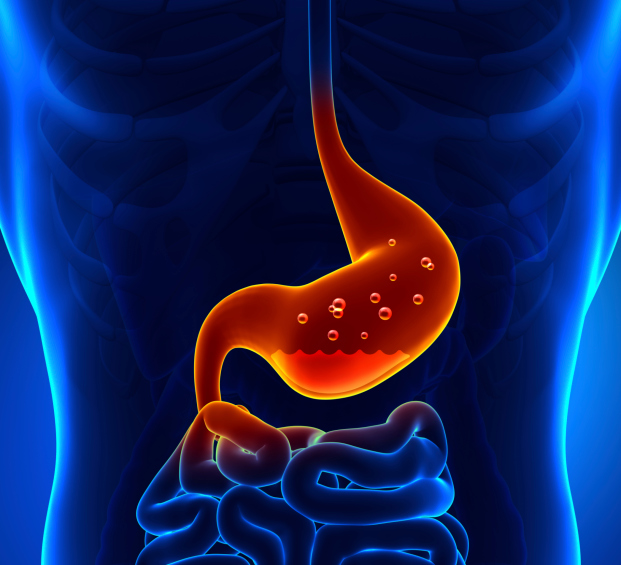 How much do you know about your tummy? Can you separate the fact from fiction?
How much do you know about your tummy? Can you separate the fact from fiction?
From those burning, churning feelings that erupt whenever we eat our favorite foods, to the bloating that keeps us from zipping up our jeans, to the gas that can make us the most unpopular person in the elevator, our stomach can be the cause of some major inconveniences, if not some outright health concerns.
Still, experts say most folks know painfully little about how their stomach and their digestive tract operates — one reason that solving tummy troubles can seem much harder than it has to be.
Try to separate the myths from the truth to see how much you really know about how to keep your tummy healthy and happy.
1. Digestion takes place primarily in the stomach.
Myth. The major part of the digestive process takes place in the small intestine. The stomach takes in the food, then churns it and breaks it into tiny particles called “chyme.” The chyme are then released in small batches into the small intestine, where most digestion occurs. Contrary to popular belief, foods do not digest in the order they are eaten. Everything lands in the stomach where it’s all churned together, and when it’s ready it’s released into the small intestines together.
2. If you cut down on your food intake, you’ll eventually shrink your stomach so you won’t be as hungry.
Myth. Once you are an adult, your stomach pretty much remains the same size — unless you have surgery to intentionally make it smaller. Eating less won’t shrink your stomach, but it can help to reset your “appetite thermostat” so you won’t feel as hungry, and it may be easier to stick with your eating plan.
3. Thin people have naturally smaller stomachs than people who are heavy.
Myth. While it may seem hard to believe, the size of the stomach does not correlate with weight or weight control. People who are naturally thin can have the same size or even larger stomachs than people who battle their weight throughout a lifetime. Weight has nothing to do with the size of the stomach. In fact, even people who have had stomach-reducing surgeries, making their tummy no larger than a walnut, can override the small size and still gain weight.
4. Exercises like sit-ups or abdominal crunches can reduce the size of your stomach.
Myth. No exercise can change the size of an organ, but it can help burn the layers of fat that can accumulate on the outside of your body. Plus it can help tighten the muscles in the abdomen, the area of the body lying just south of the diaphragm, that houses the stomach and many other internal organs. Interestingly, the part of your “belly fat” that can do you the most harm may actually be the fat you don’t see. It resides in the “omentum,” a kind of internal sheet that lies over and around your internal organs.
5. Foods that contain insoluble fiber (which does not dissolve in water) cause less gas and bloating than foods with soluble fiber (which does dissolve in water).
Fact. Most are surprised to discover that what they perceived as a “gentler” form of fiber — the soluble kind found in foods like oat bran, beans, peas, and citrus fruits — can actually cause more gas and bloating than insoluble fiber, found in foods like whole-wheat bread, wheat cereals, cabbage, beets, and carrots. And the reason is that gas and bloating result from intestinal flora that is needed to digest soluble fiber. Since insoluble fiber is not digested at all — it goes right through you — there is no interaction with intestinal flora; consequently, no gas is formed.
6. One way to reduce acid reflux is to lose as little as 2 to 3 pounds.
Fact. The less acid that flows back up into your esophagus, the fewer problems you will have clearing it. And believe it or not, losing just 2 pounds of weight from the abdominal area can make a difference — and pregnancy is about the best example of this. As the baby grows and pushes against the internal organs, heartburn increases; but once the baby is born and the pressure is relieved, the heartburn is, too. In much the same way, losing even a little bit of belly fat can provide similar relief.
7. Beans cause everyone to make excess gas, and there’s nothing you can do about it.
Myth Beans are high in a kind of sugar that requires a certain enzyme to properly digest. Some people have more if it, some people less. And the less you have, the more gas that will be produced during digestion of beans. What can help: Studies show that over-the-counter products that add more of the enzyme needed to break down the sugar in beans as well as other traditionally gassy vegetables can help if taken before you eat.









